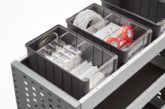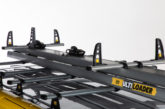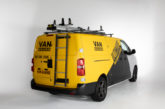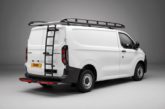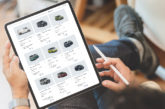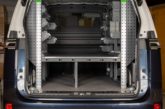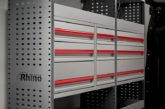
Environmental impact, cost, performance, image… there are many factors to consider when choosing whether to buy a diesel or petrol van. RAC van insurance has weighed up the features and benefits of both, and briefly explores the world of alternative fuels.
Initial price and lifetime costs
Any business owner knows to focus on more than the initial purchase price when weighing up their options – fuel price, fuel efficiency, and vehicle maintenance and resale value should also be considered.
Diesel vehicles tend to be more expensive to purchase. However, they usually last longer than petrol models – for example, vans are kept for an average of 10 years before being replaced.
Diesel vehicles are seen as more cost-effective than their petrol counterparts – they tend to be more economical with their fuel, giving drivers an average of 15 to 20% more miles per gallon than their petrol equivalents. However, it could take several years to see these savings. In fact, if you’re only going to keep your vehicle for a few years, a petrol model might work out cheaper.
The drive
If you’re going to be driving a lot, you want an enjoyable ride. Vibrations on the steering during idling and noise in the cab while accelerating are lower in a petrol vehicle when compared with a diesel.
If power is important, diesel engines are able to produce high torque at low speeds, making them good for overtaking and towing.
Environmental implications
A modern diesel typically emits fewer hydrocarbons and less carbon monoxide than a petrol vehicle, but greater amounts of nitrogen oxides and particulate matter. However, in an effort to drive down environmental damage further, new policies that try to limit diesel use are being introduced – there are plans to charge an extra £10 or driving a diesel in central London from 2020, and Islington now charges (£20) for idling diesel engines. But climate change is just one issue – it’s also important to consider the impact of diesel on air quality and public health, and, reportedly, particulates cause respiratory problems.
Alternative fuels
Electric and hybrids are the most common alternative fuels for cars, however the latter is rare in commercial vehicles.
In the first six months of 2014 there were 144% more electric vehicles registered compared to the same period in 2013 – up from 1,049 to 2,558. If the trend continues, we could see more and more on the road, especially with grants of up to £8,000 available to firms to help buy them. In fact, it’s David Cameron’s aspiration to see one million electric vehicles on the roads by 2020.
There are many benefits to electric vehicles, including vans, such as zero exhaust emissions, minimal noise pollution and power delivered without any lag.
From a business perspective, if you cover a relatively small area (30 to 40 miles a day) then electric could work well for you. However, if you need to travel further or make unplanned trips, this might not be the best solution as you can only drive so far before the batteries need charging again, which takes several hours.
In response to this, the RAC was the first breakdown service to launch a mobile electric charging patrol, dedicated to delivering rapid charge to members with electric vehicles in need of a boost.
Hybrid vehicles get their power from a diesel engine plus a battery pack and an electric motor. They do reduce harmful emissions but are more expensive than conventional vans and aren’t yet widely available.
Biodiesel and gas power are also worth investigating, although the former has been criticised for its production methods. Gas powered vehicles could be a realistic option for businesses as prices start at £8,820 plus VAT and they’re exempt from the London congestion charge.
Conclusion
Van drivers will weigh up their business priorities when they choose between petrol and diesel vehicles. Or legislation will make that decision for them. But what is clear is that the demand for vehicles that run on alternative sources of fuel will only increase as the cost to both the environment and businesses of running on fossil fuels becomes prohibitive. As the technology improves exponentially, vehicles will see increasingly better performance and range, and will eventually become a preferred option rather than an alternative.


